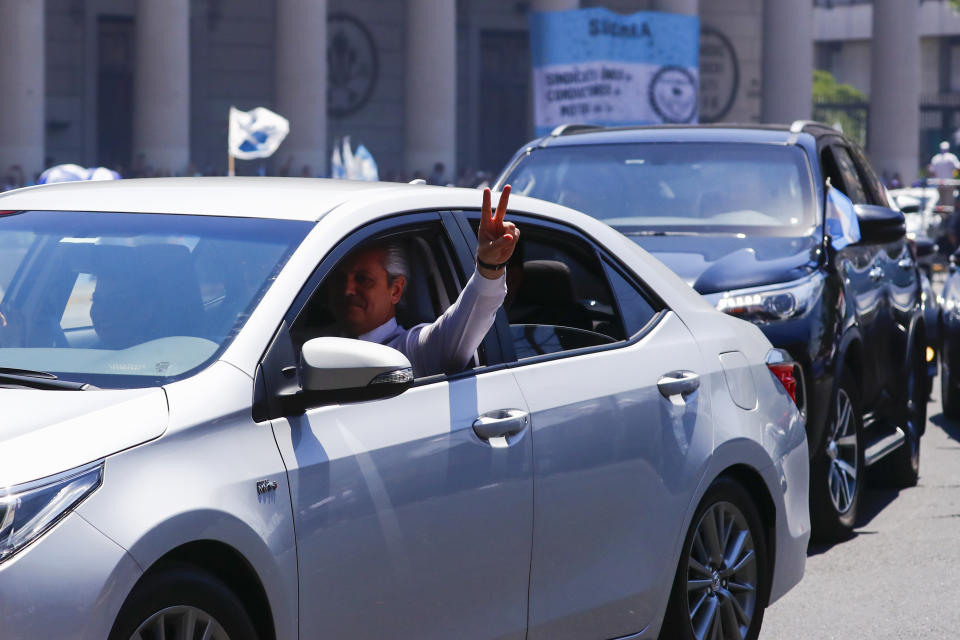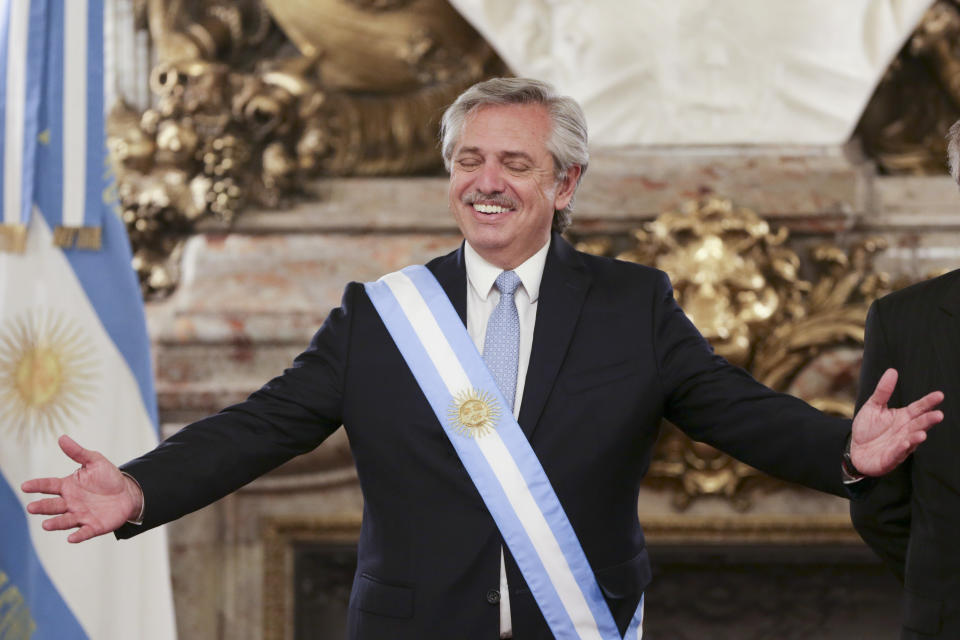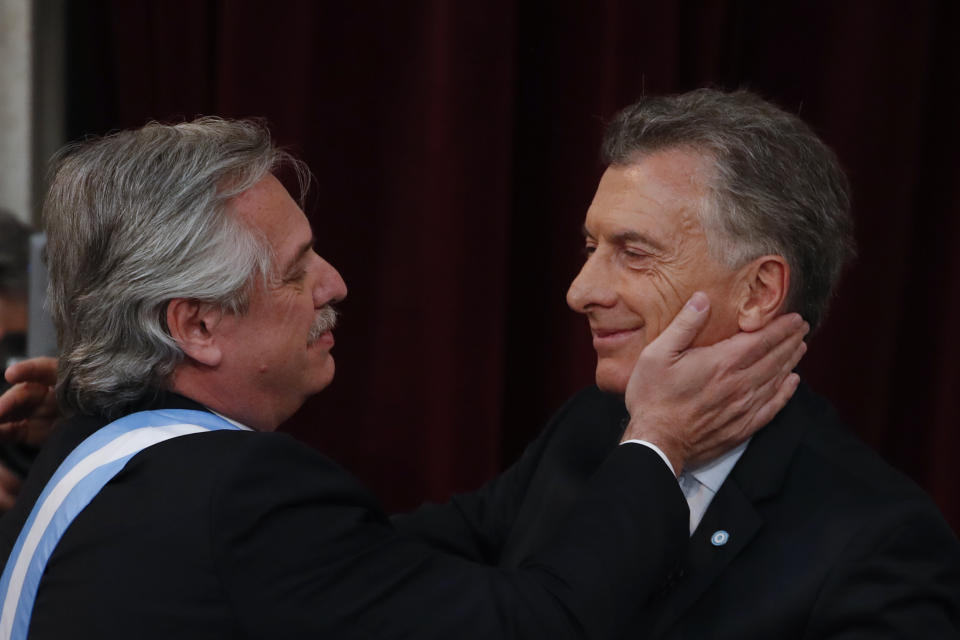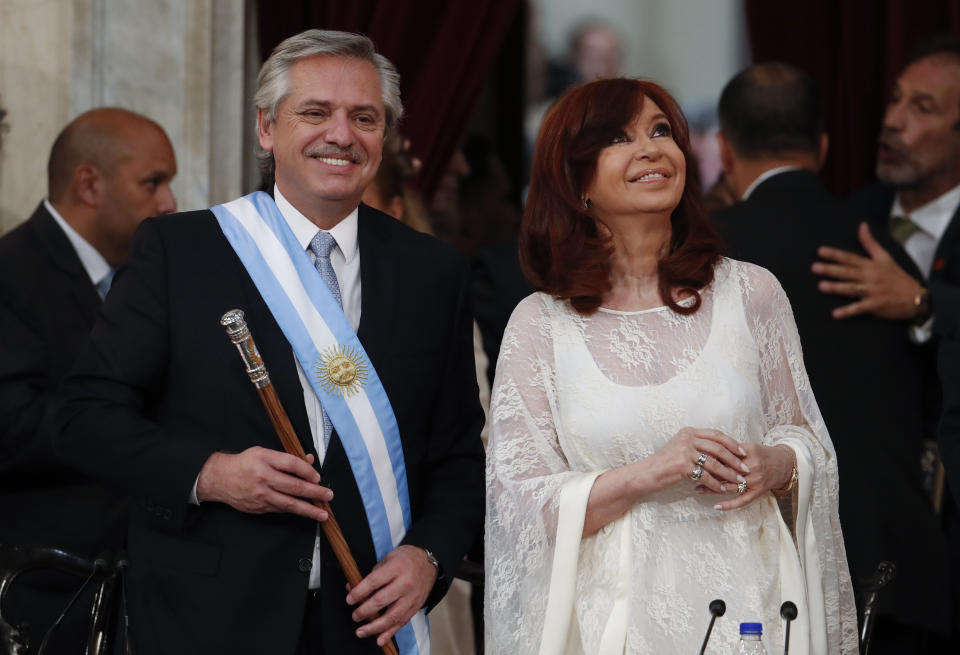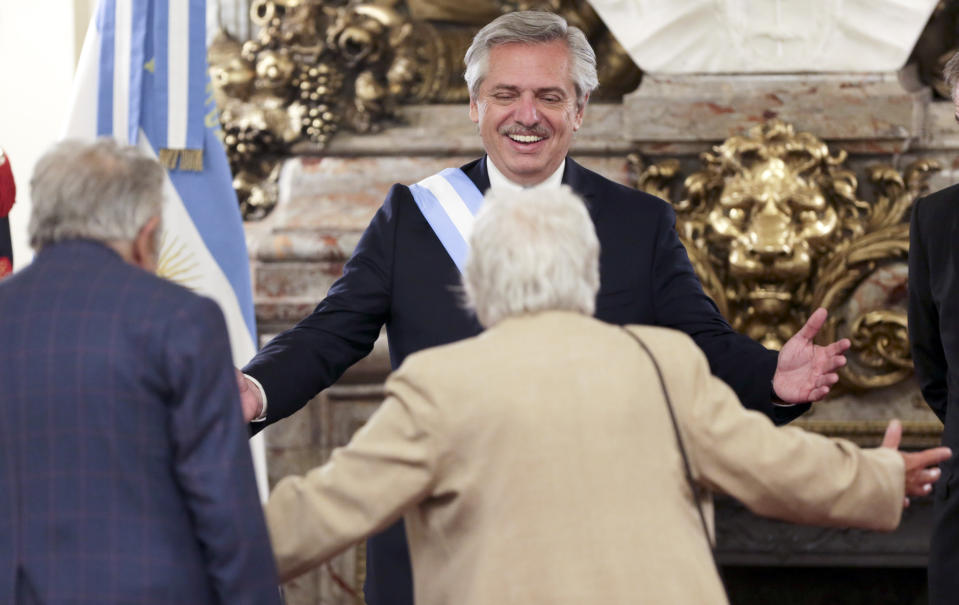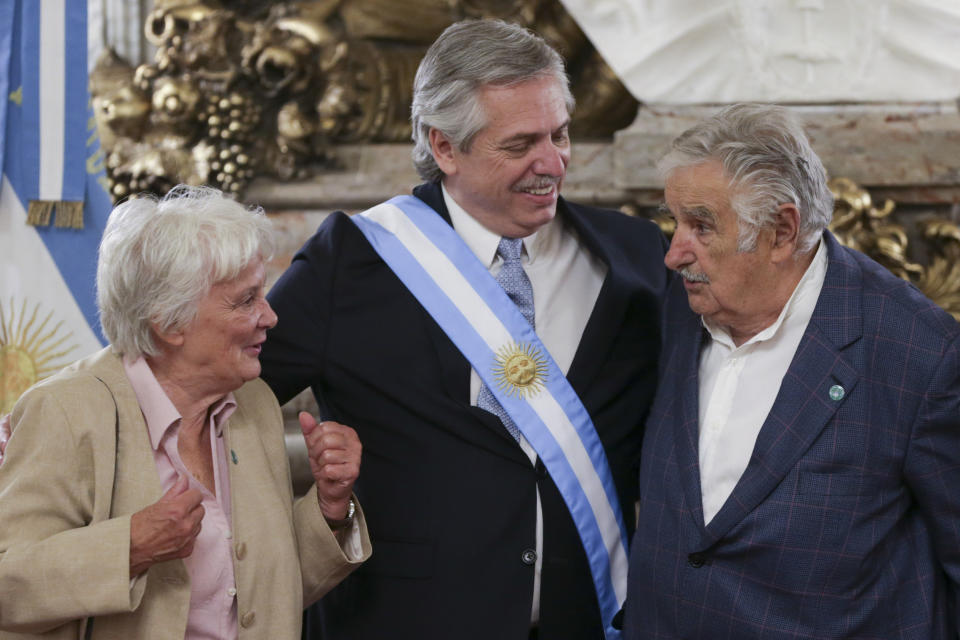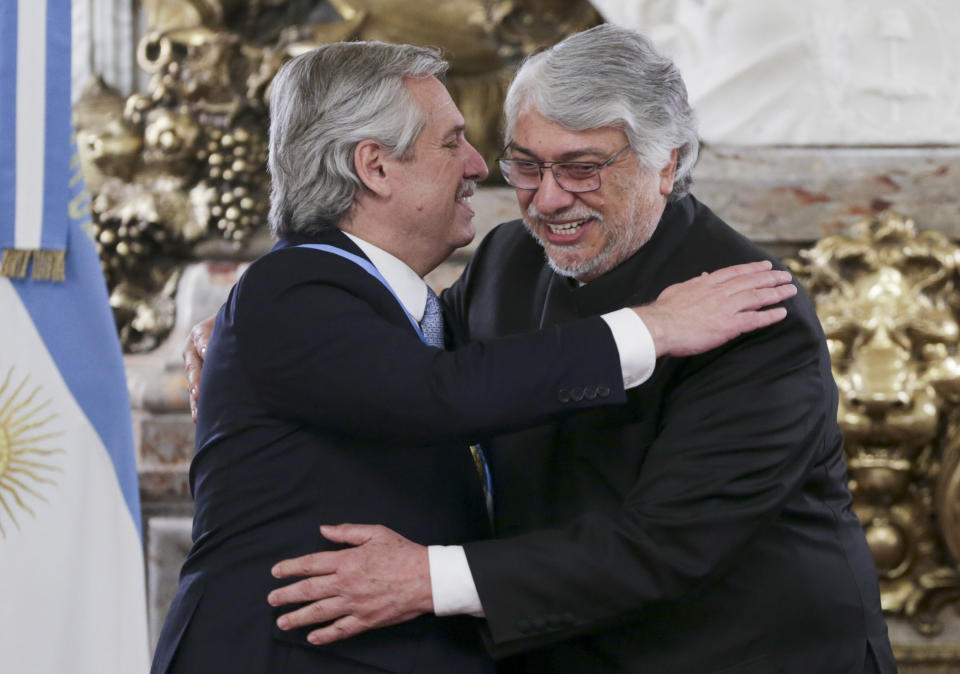Alberto Fernández inaugurated as president of Argentina
BUENOS AIRES (AP) — Alberto Fernández assumed the presidency of Argentina on Tuesday, returning the country to the ranks of left-leaning nations at a moment of right-wing resurgence in the Western Hemisphere. He pledged more aid for the poor and warned that the country would be unable to pay all its debts on time.
Taking the vice presidency was Cristina Fernández, 66, a polarizing figure who served as president from 2007 to 2015 and faces several charges of corruption from that time. Her presence has raised questions about the extent of her influence in the new administration.
Alberto Fernández, a 60-year-old lawyer from the country's center-left Peronist movement, faces the immediate challenge of trying to pull Argentina from economic crisis while fulfilling promises of greater social justice. The country has a 35% poverty rate and is struggling to make debt payments on time. The economy is expected to shrink 3% by the end of 2019, with inflation at 55%.
“'I come before you to call for unity from all Argentina, to build a new social contract of brotherhood and solidarity,” Fernández said in his inaugural address before Congress. “I come before you calling for all to put Argentina on its feet, to put the country on a path toward development and social justice."
He said that his administration's first meeting would focus on reducing hunger, and said that Argentina wanted to pay all its creditors but lacked the capacity to do so.
Outgoing leader Mauricio Macri became the first non-Peronist president to complete his term in 74 years, a landmark seen as a sign of Argentina's maturing democracy.
The two men embraced after Macri handed Fernández the presidential sash and staff, traditional symbols of leadership.
Alberto Fernández served as head of Cristina Fernández's Cabinet for the beginning of her time in power and many wonder if the new vice president will wield outsized power in the new government. She and Alberto Fernández have denied that.
Cristina Fernández told tens of thousands of cheering Peronists gathered in the Plaza de Mayo in the capital Tuesday night that Macri's policies had left “a devastated country, scorched earth, but I know we have the conviction to change this reality. I have faith in the people, and I know that these wonderful people never abandon those who fight for them."
Close allies of Cristina Fernández have already been named to key government positions and her son is head of the governing party in the lower house of the legislature.
“It's been four hard years. We heard that we'd never be back, but we're back and we'll be better than ever,” Alberto Fernándeztold the crowd in the Plaza de Mayo.
Party members cheered as the pair were inaugurated, saying they had high hopes for an improved quality of life.
“I see a lot of people unemployed, a lot of hunger, and that is very frustrating," said Claudia Pouso, a 57-year-old retiree. I want everything to be turned around, more jobs for people. My daughter works in the hospital and there is nothing there. ... Everything needs to change.”
Outgoing Interior Minister Rogelio Frigerio praised Alberto Fernández's conciliatory attitude toward his political opponents, and his openness toward dialogue.
“We have to give the next government the benefit of the doubt, he needs help and we will help,” Frigerio said.
The incoming president has already announced plans to fight poverty with the distribution of subsidized basic foods, and he has outlined measures to lower food prices and fight malnutrition in poor families.
He has also announced plans to raise retirees' pensions and increase benefits for public employees and welfare recipients.
In a region increasingly dominated by right-leaning governments like those in Chile, Bolivia and Brazil, Alberto Fernández is expected to move Argentina away from close cooperation with the U.S. and other conservative governments that are trying to unseat Venezuela's embattled socialist president, Nicolás Maduro.
Fernández is close to former left-leaning Brazilian leader Luiz Inácio Lula da Silva and Mexico's populist president, Andrés Manuel López Obrador. Meanwhile, tensions have been rising between Fernández and far-right President Jair Bolsonaro of Brazil, which Argentina's main trading partner. Fernández said he would try to work closely with Brazil, whose vice president attended the inauguration.
